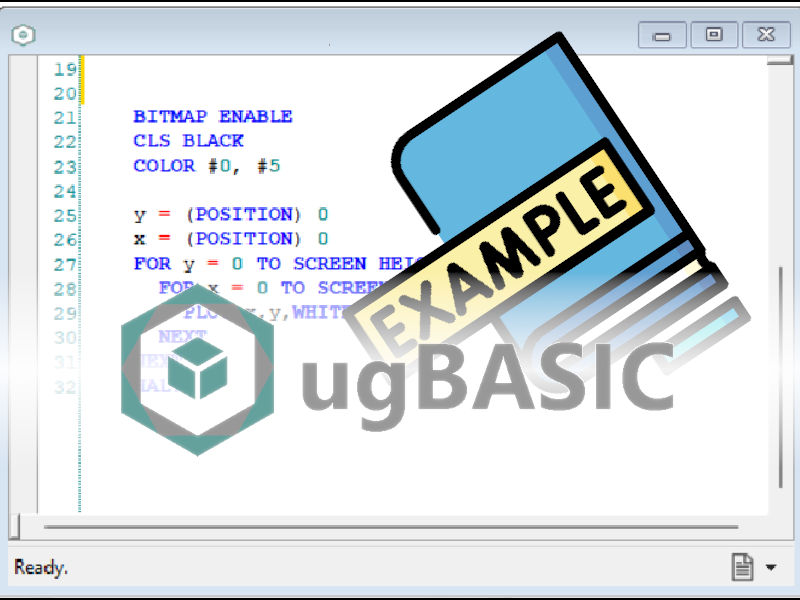MATHEMATIC ROUTINES: LIMITS OF NUMERIC TYPES
This example attempts to show the behavior of the system when dealing with conversion between types, signed or unsigned. The rule that ugBASIC uses is the minimum error rule: in general, if the destination type has a sufficient number of bits, it is possible to represent the information without losses. If the destination type has fewer bits, the number is guaranteed to be represented correctly if the number of destination bits are sufficient. In case of signed types, if the source number is negative but the destination type is unsigned, the value will be set to the absolute value without sign.
source
compile
sandbox
issues?
back to examples


